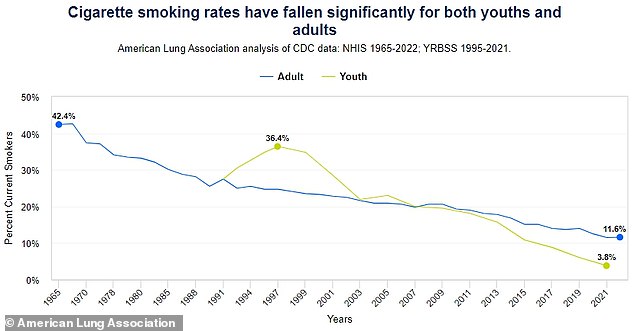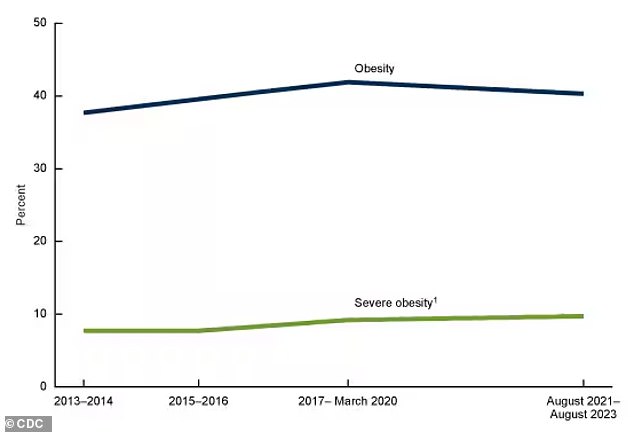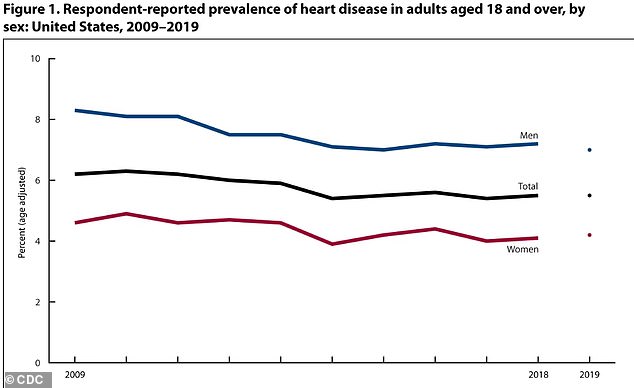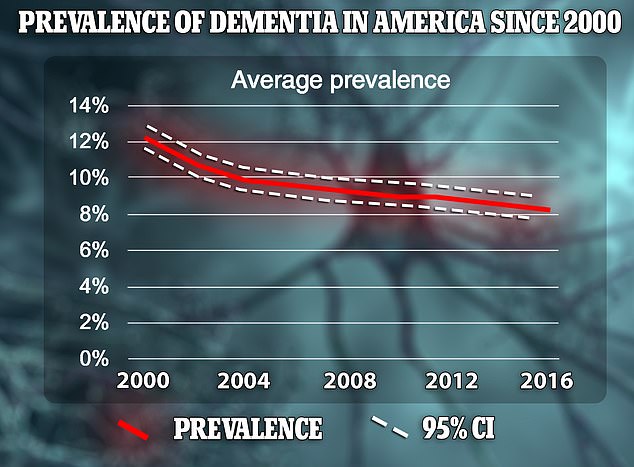More than seven million Americans suffer from some form of dementia and by 2040 it is estimated that twelve million people will suffer from it.
As the baby boomer generation ages, the number of elderly people will increase significantly, especially those over the age of 85 who are at increased risk of developing dementia.
But there is a glimmer of hope.
Although the total number of people with dementia is expected to increase due to an aging population, the rate at which new cases of dementia are diagnosed has decreased.
Researchers are now beginning to understand what types of medical advances, shifts in public health consciousness, and changing rates of dementia-causing chronic diseases have worked. good direction.
Numerous data analyzes have supported new findings that the number of new cases of diagnosed dementia in the US and Europe declined by 13 percent per decade between 1988 and 2015, indicating that fewer new cases have emerged relative to the growing size of the senior population. .
A study also found that a smaller percentage of older adults are currently living with dementia compared to people of the same age in previous decades.
The above shows the prevalence of dementia – the percentage of people who have dementia – per year from 2000 to 2016. This shows a gradual decline in figures
People are more interested than ever before in improving their personal health and spending a lot of money to do so.
With that has come generational shifts in the way people understand their health, thanks to unfettered access to expert advice and the way they care for themselves to prevent devastating diseases such as dementia.
Researchers at Harvard University noted a 13 percent decline in the incidence of dementia every decade. That was an average; one study showed a drop of as much as 19 percent.
If the trend of declining dementia rates in Europe and North America continues, it could mean that 15 million fewer people in high-income countries will develop dementia by 2040, compared to previous predictions of the disease’s global impact.
The Harvard team studied about 49,000 people aged 65 and over in seven different studies of dementia and its prevalence, conducted in the US and Europe. Each study collected data from their subjects over decades, with some collecting data every few years.
They then calculated how the risk of dementia changed over ten-year periods by analyzing data from multiple five-year periods within each study.
Lori Chibnik, a biostatistician at the Harvard TH Chan School of Public Health, said: ‘The steady decline in incidence over three decades suggests that preventive efforts in lifestyle education and health interventions such as blood pressure control and antithrombotic medications may account for at least some of the problems can compensate. the growing burden of dementia due to the global increase in life expectancy.’
Another analysis published in a 2024 issue of The Lancet Public Health concluded that of the 27 studies they analyzed, including public data in the US and Europe, the research “consistently reported a decreasing incidence of dementia.”
As exposure to health knowledge has increased dramatically since the inception of the Internet, people have become increasingly interested in their personal diet and fitness, family history of certain diseases, how their work life makes room for fulfilling their personal life, and spend more time with their lives. lovers.

People are more concerned than ever about improving their personal health by staying on top of doctor visits and educating themselves about healthy lifestyle habits

The number of smokers, which contributes to a 30 to 50 percent higher risk of dementia, has fallen significantly over the past twenty years
This interest has empowered several generations to make healthier choices to reduce the risk of developing chronic disease, including dementia.
The number of smokers – which increases the risk of dementia by 30 to 50 percent – has fallen sharply over the past twenty years.
This is reported by the American Lung Association rates have fallen from about 43 percent of Americans smoking in 1965 to less than 12 percent in 2022. In the past five years alone, the number of smokers has fallen by 17 percent.
And the percentage of people who currently smoke dropped from 27 percent to just over 18 percent during that period.
It is true that worldwide, and especially in the US, a growing number of people are becoming severely obese. At the same time, data from wealthy countries, including the US, show signs that the rate of increase in body mass index (BMI) is slowing.
Dr. Boyd Swinburn, a public health and nutrition expert at the University of Auckland, told Stat in these places: “The real take-off happened in the ’80s, ’90s, early 2000s and then it started to level off.”
The national obesity rate also fell from last year, which statisticians say could be linked to Ozempic’s explosion on the market, joining Wegovy, Zepbound and Moujaro – blockbuster drugs used for weight loss.
Improved lifestyle education and expanded access to doctor checkups since the Affordable Care Act (Obamacare) was enacted in 2010 have also improved people’s ability to monitor their health and thus reduce the risk of dementia-related chronic diseases such as heart disease. – reduce vascular diseases.
It is believed that unhealthy arteries play a major role in whether someone will develop dementia, especially vascular dementia.

The chart above shows findings from a new CDC report, which states that obesity rates have fallen for the first time ever, from 42 to 40 percent, although they still remain higher than in 2013-2014.

Signs point to better cardiovascular health nationwide. The number of American adults with heart disease fell from more than six percent in 2009 to 5.5 percent in 2019.
When arteries become hardened or narrowed, the blood cannot effectively transport oxygen to the brain, depriving the brain cells of what they need to survive.
This can lead to coronary artery disease, which increases the risk of dementia by about 27 percent.
But signs point to better cardiovascular health nationwide. The number of American adults with heart disease fell from more than six percent in 2009 to 5.5 percent in 2019.
The Harvard researchers said it’s difficult to pinpoint what exactly is causing new dementia diagnoses to decline because so many factors are changing at once, including improvements in lifestyle, better education and health care treatments such as controlling blood pressure or using medications to prevent blood clots.
Dr. Chibnick said, “Providing this evidence of a decline is the first step toward elucidating the factors behind that decline and ultimately effective interventions to promote brain health.”

